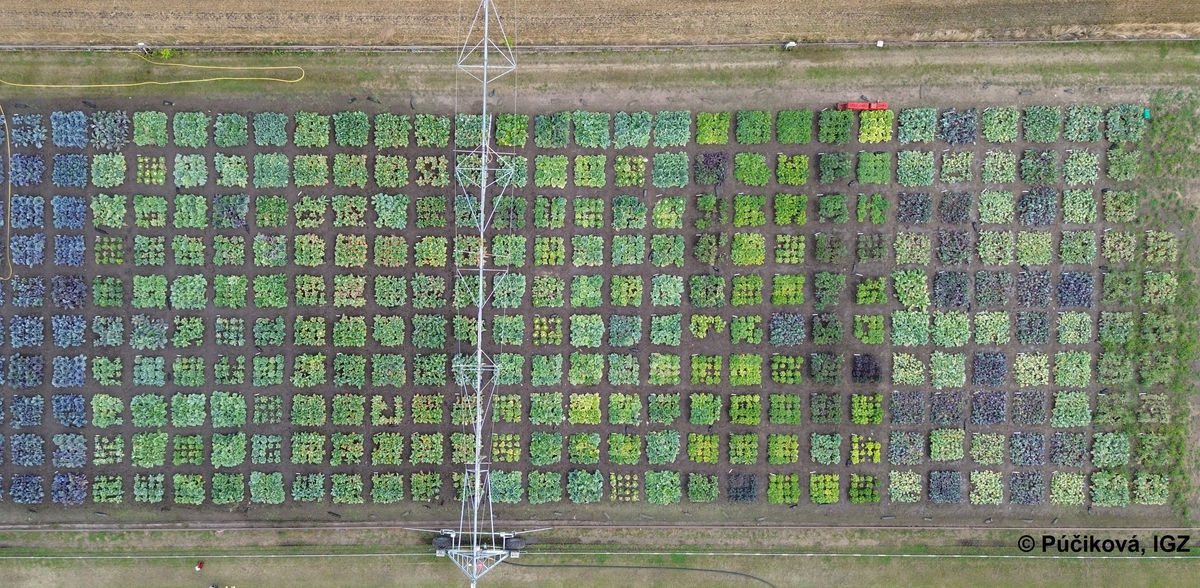Spin-off project: Analysis of the biodiversity of glucosinolate compounds in cabbage vegetables
Advertisement
Together with the Leibniz Institute for Food Systems Biology at the Technical University of Munich (LSB), the IGZ has acquired funding for the computer-aided analysis of metabolite profiles in cabbage species. The project complements the work of the "SharpGreens" project, which is investigating how human health can be improved with the help of cabbage vegetables. Here, cabbage varieties with a high content of health-promoting plant constituents are identified in order to develop innovative foods from them.
Brassica vegetables are rich in various phytochemicals that support immune function and prevent chronic diseases in humans. A large proportion of these protective effects are attributed to certain degradation products of mustard oil glycosides, the glucosinolates. These secondary metabolites are modified by specific plant enzymes. In order to better understand their accumulation in cabbage vegetables and thus improve plant quality, the different hydrolysis patterns are to be investigated and the modifying proteins identified.
The aim of the project is therefore to use multi-variant data analysis methods to identify variety-specific patterns in the formation of secondary metabolites in cabbage vegetables (Brassica oleracea) with regard to their evolutionary relationships. In addition, they will serve as clues for the characterization of previously unknown modifying enzymes.
Metabolite profiles of 317 varieties of cabbage serve as the data basis: kohlrabi, white cabbage, red cabbage, savoy cabbage, cauliflower, Chinese broccoli and kale. The profiles originate from a field trial at the IGZ in summer 2023. The results will be made available as an interactive web application within the Food Systems Biology Database.
The project, which is funded by the Leibniz Association, lays the foundation for an in-depth joint collaboration between IGZ and LSB for the computer-aided analysis of multi-omics data sets and the application of the two institutes' complementary analytical platforms. The current project, headed by Dr. Katja Witzel, will start on 01.12.2024 and run for a period of twelve months. Dr. habil. Franziska Hanschen (IGZ), Vanda Púčiková (IGZ) and Dr. Andreas Dunkel (LSB) complete the research team. The Leibniz Research Network "Active Ingredients" supports collaborations between Leibniz institutes within the framework of "Seed Money" projects with up to €10,000.
Note: This article has been translated using a computer system without human intervention. LUMITOS offers these automatic translations to present a wider range of current news. Since this article has been translated with automatic translation, it is possible that it contains errors in vocabulary, syntax or grammar. The original article in German can be found here.
Most read news
Other news from the department science

Get the food & beverage industry in your inbox
By submitting this form you agree that LUMITOS AG will send you the newsletter(s) selected above by email. Your data will not be passed on to third parties. Your data will be stored and processed in accordance with our data protection regulations. LUMITOS may contact you by email for the purpose of advertising or market and opinion surveys. You can revoke your consent at any time without giving reasons to LUMITOS AG, Ernst-Augustin-Str. 2, 12489 Berlin, Germany or by e-mail at revoke@lumitos.com with effect for the future. In addition, each email contains a link to unsubscribe from the corresponding newsletter.
Most read news
More news from our other portals
Something is happening in the food & beverage industry ...
This is what true pioneering spirit looks like: Plenty of innovative start-ups are bringing fresh ideas, lifeblood and entrepreneurial spirit to change tomorrow's world for the better. Immerse yourself in the world of these young companies and take the opportunity to get in touch with the founders.




























































